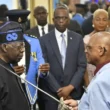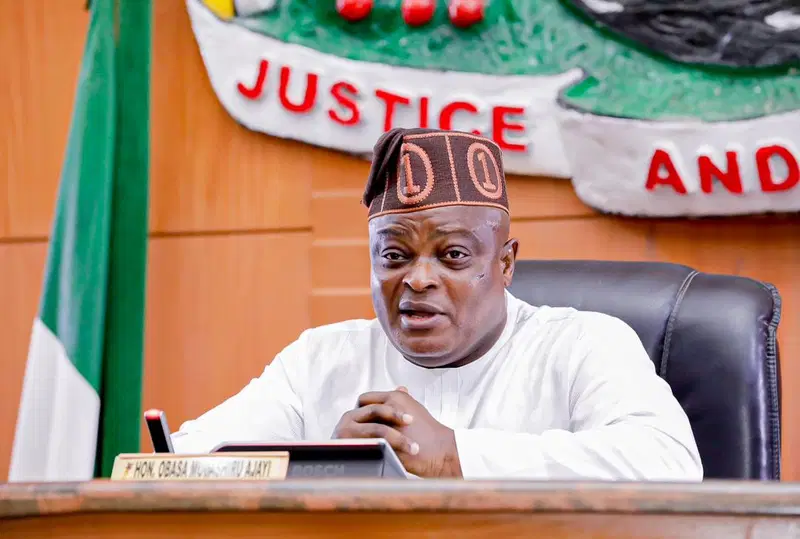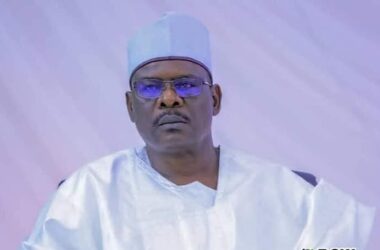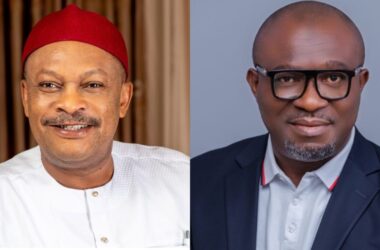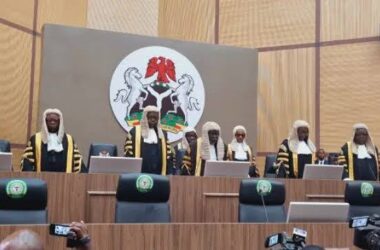The Lagos State House of Assembly has called on the National Assembly to officially recognize and list the 37 Local Council Development Areas (LCDAs) in Lagos State. This appeal came during a legislative session held on Monday, led by Speaker Mudashiru Obasa.
The Assembly also discussed a bill aimed at reviewing the Local Government Administration law in Lagos State, and proposed a second public hearing to gather further input from stakeholders.
Speaker Obasa emphasized that the review of the Local Government Administration law is not intended to abolish the LCDAs, but rather to ensure that they operate effectively in conjunction with their parent local governments.
He clarified that there have been widespread concerns and confusion regarding the future of the LCDAs.
“We are not scrapping the LCDAs, rather, what we are trying to do is to look at the recent Supreme Court judgement in terms of Lagos and local governments’ joint account and fashion out a way where the parent local governments and the LCDAs work together without the LCDAs being shortchanged,” Speaker Obasa said.
The Supreme Court judgement referenced by Obasa relates to the financial autonomy of local governments in Nigeria.
As part of this effort to improve the operation of local governments, the Lagos Assembly invited the Attorney-General of Lagos State, Lawal Pedro, to provide legal interpretations of the ruling and its implications for local governments in the state. This step is seen as necessary to ensure that the ongoing review of the law is in line with judicial interpretations.
During the session, the Chairman of the Committee on Local Government, Sanni Okanlawon, reported on the outcome of a previous public hearing held regarding the proposed review of the Local Government Administration law.
According to Okanlawon, the turnout for the public hearing was lower than expected, which he attributed to unfavorable weather conditions. He requested the Assembly to grant approval for a second public hearing to give more people an opportunity to voice their opinions.
In response to Okanlawon’s report, Speaker Obasa agreed that a second hearing was necessary, noting that many Lagos residents were eager for clarity on the fate of the LCDAs.
Members of the Assembly also expressed support for the formal listing of the LCDAs as substantive local government areas by the National Assembly. This would give the LCDAs greater recognition and access to funds allocated to local governments across Nigeria.
Speaker Obasa pointed out the disparities in local government distribution between states, citing Kano as an example, which has 44 local governments, while Lagos, with a larger population and economy, only has 20 officially recognized local governments.
“There is a need for a review of the revenue sharing formula by the Revenue Mobilisation Allocation and Fiscal Commission (RMAFC) to reflect the population and economic contribution of Lagos,” Obasa said.
Supporting the call for the listing of the LCDAs, Desmond Elliot, a member of the Lagos Assembly, highlighted Lagos’ unique status as a major economic hub in Nigeria. He argued that the size, population, and economic significance of Lagos justify the need for more recognized local government areas.
“Anambra state has 21 local governments and it is nowhere close to what Lagos has in terms of resources, economic importance, and dividends of democracy,” Elliot said, reinforcing the call for better representation for Lagos in the distribution of local government funds and resources.
In addition to seeking recognition for the LCDAs, members of the Assembly stressed the importance of ongoing collaboration with the National Assembly to achieve these goals. They also emphasized the need for public enlightenment to ensure that citizens understand the purpose of the reforms and are not left in the dark regarding changes to the local government system.



